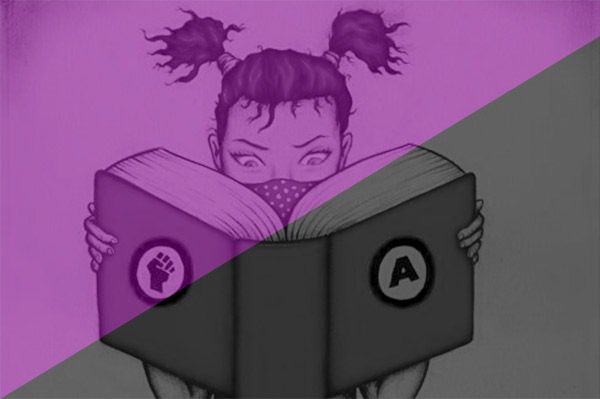Over 30 years of anarchist writing from Ireland listed under hundreds of topics
Analysis
Thinking about Anarchism - Anarchism and the State
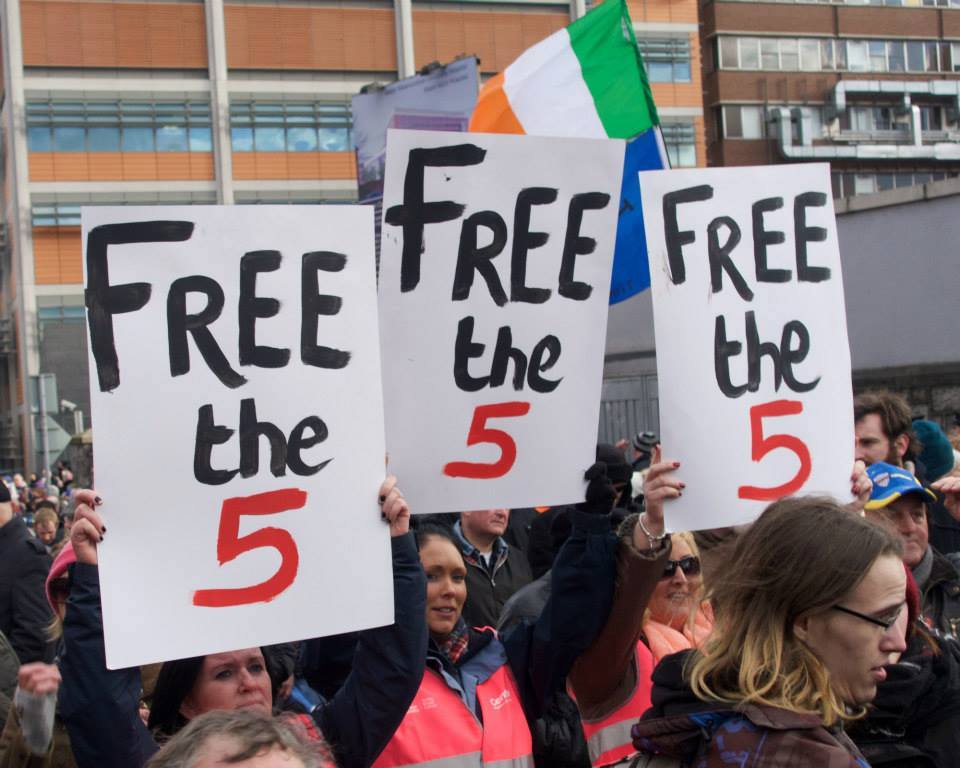 Ever wonder why the Gardaí show up in large numbers when you’re trying to stop water meters in your estate, but haven’t got the resources to come straight out when you think your neighbour’s house is being burgled? If so, you’re thinking about the state.
Ever wonder why the Gardaí show up in large numbers when you’re trying to stop water meters in your estate, but haven’t got the resources to come straight out when you think your neighbour’s house is being burgled? If so, you’re thinking about the state.
Misconceptions & Reality
The most common misconception about anarchism is that it is in favour of ‘chaos’ or some sort of world generally devoid of order and democratic institutions which would leave us at the mercy of predators within our society. Therefore it aims for the destruction of civilisation and democracy itself, which in this view are represented by the state – the guarantor of peace, freedom, and of course, roads.
The Water Revolt: Ireland 2015
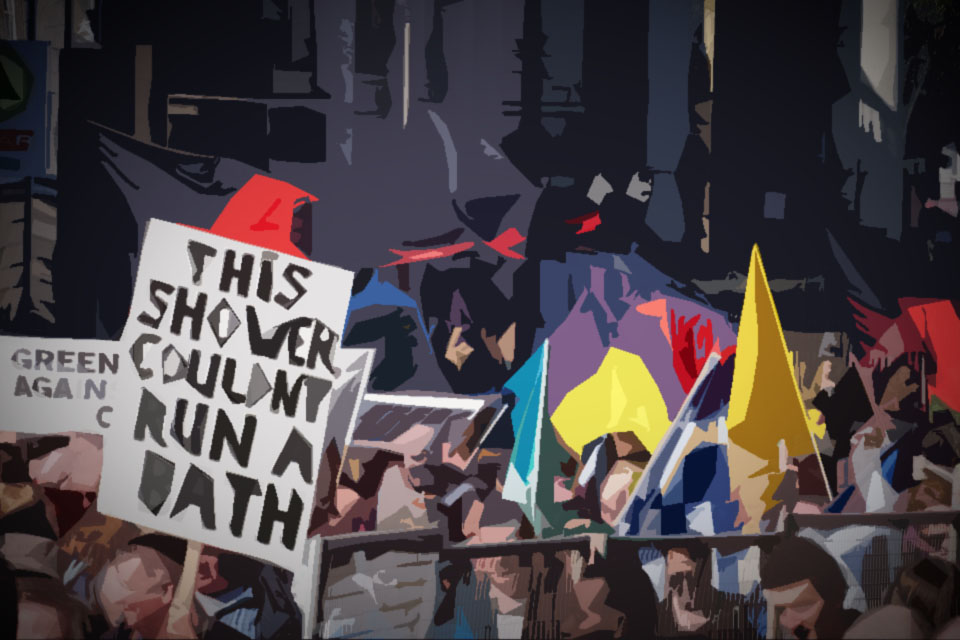 The campaign against the water charges is the most widespread and powerful grassroots movement in recent Irish history. With hundreds of local campaign groups, daily direct actions, and 4 national demonstrations on the order of 50,000-100,000, the cynical refrain that 'the Irish don't protest' has rapidly been replaced by a sense of ubiquitous rebellion. Irish Water is a depraved neoliberal world in effigy, embodying many of the worst problems of our society including the rule of international finance (and private greed in general) at the cost of the vast majority's well being, and the chronic disconnection of the populace from decision making. As such the movement has become a platform for opposition to austerity, the bank bailout, privatisation, the government, party politics, the EU, and more. Thousands of people have experienced a political (re-)awakening. But while it is possible that we will win this battle, and abolish Irish Water, this struggle represents a precious opportunity to make a grassroots offensive after so many years of being beaten down.
The campaign against the water charges is the most widespread and powerful grassroots movement in recent Irish history. With hundreds of local campaign groups, daily direct actions, and 4 national demonstrations on the order of 50,000-100,000, the cynical refrain that 'the Irish don't protest' has rapidly been replaced by a sense of ubiquitous rebellion. Irish Water is a depraved neoliberal world in effigy, embodying many of the worst problems of our society including the rule of international finance (and private greed in general) at the cost of the vast majority's well being, and the chronic disconnection of the populace from decision making. As such the movement has become a platform for opposition to austerity, the bank bailout, privatisation, the government, party politics, the EU, and more. Thousands of people have experienced a political (re-)awakening. But while it is possible that we will win this battle, and abolish Irish Water, this struggle represents a precious opportunity to make a grassroots offensive after so many years of being beaten down.
The Twisted Road to Partnership: Can the trade union movement be saved from the bureaucracy?
As the trade union leadership does its best to drag us back into a new round of ‘social partnership’, Gregor Kerr – an activist in the Irish National Teachers Organisation – compares the best and worst of recent developments in the trade unions and poses a challenge – Can we save the movement by ridding it of the stultifying bureaucracy that seems set to strangle the life out of it?
The past number of months have witnessed the best and the worst of the trade union movement and its leadership. On the one hand, the presence of 5 trade unions – Unite, Mandate, CPSU, CWU and OPATSI – in the leadership of the Right2Water Campaign has certainly contributed to its being able to mobilise some of the biggest street mobilisations in the history of the state. But on the other hand the paucity of ambition and their perspective on how change in society is brought about, sees those unions and their leaderships doing their best to drag what has been largely a community-led campaign down the well-trodden and unlikely-to-succeed electoral path.
Island of No Consent - Maternity Care and Bodily Autonomy in Ireland
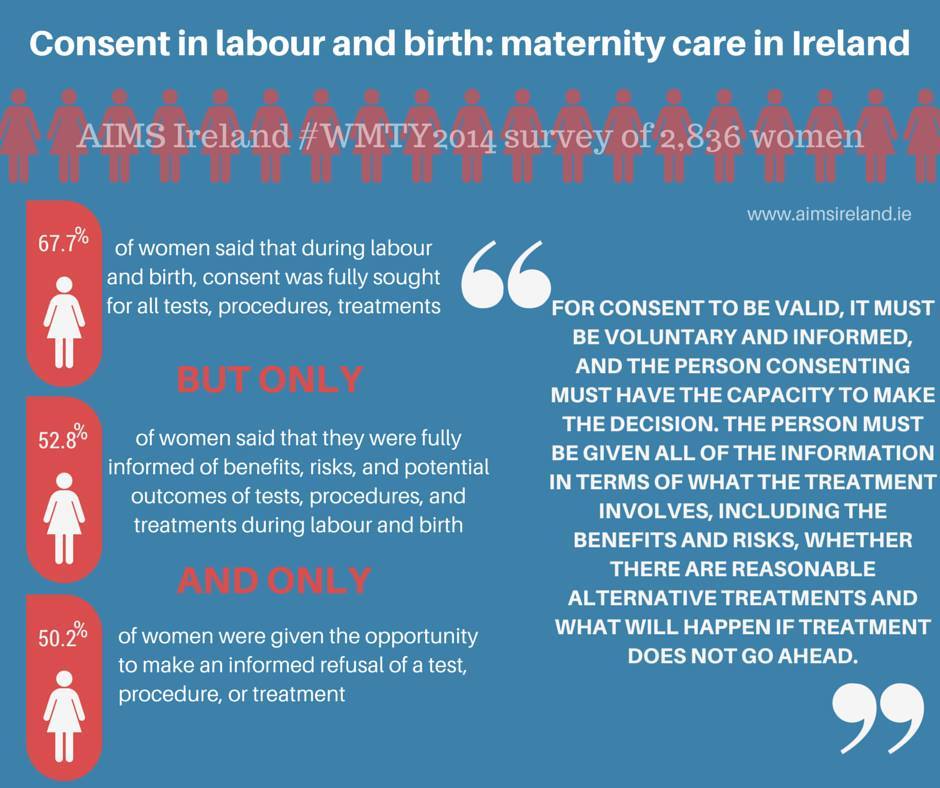 On the last day of August 2014, in a ruling the country and the media barely noticed, Mr Justice Ryan in the High Court in Kerry found against Ciara Hamilton and for the HSE in an utterly terrifying moment for every person becoming pregnant or giving birth in Ireland from here on out. Ciara Hamilton had taken a case against the Health Service Executive after the birth of her second child, during which a midwife had, without obtaining consent, broken her waters, leading to an umbilical cord prolapse and an emergency caesarean section.
On the last day of August 2014, in a ruling the country and the media barely noticed, Mr Justice Ryan in the High Court in Kerry found against Ciara Hamilton and for the HSE in an utterly terrifying moment for every person becoming pregnant or giving birth in Ireland from here on out. Ciara Hamilton had taken a case against the Health Service Executive after the birth of her second child, during which a midwife had, without obtaining consent, broken her waters, leading to an umbilical cord prolapse and an emergency caesarean section.
The breaking of waters during labour, in medical terms, amniotomy or Artificial Rupture of Membranes (ARM), is not recommended best practice precisely because it can lead to a cord prolapse, which is a serious emergency when giving birth as it cuts off the blood flow and air supply to the baby. If the person giving birth is a Strep B carrier, as Ciara Hamilton was, it can also carry an increased risk of Strep B transferring to the newborn and causing serious damage to the baby, as happened to Ciara Hamilton’s child. It is listed as a Do Not Do under NICE recommendations. Despite this, and despite ARM being known to carry dangers and risks to both birthing woman and baby, it is still a widely carried out procedure in many Irish maternity hospitals. In the case of Ciara Hamilton’s birth, it was a procedure carried out by a midwife without seeking consent to do so.
Rojava - Revolution Between a Rock and a Hard Place
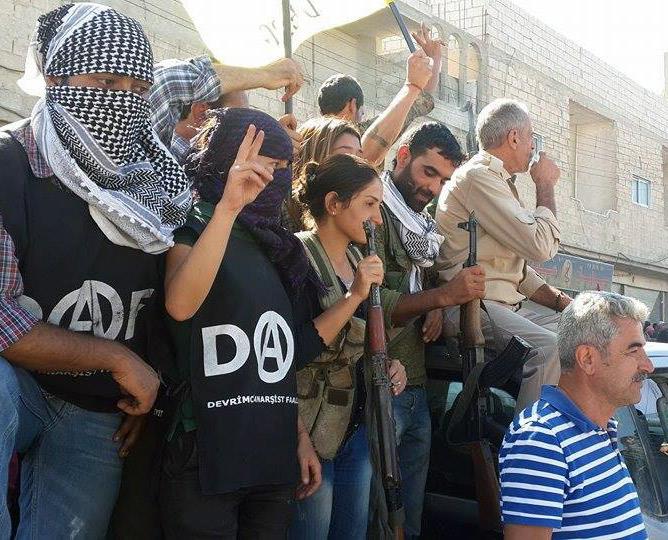 Revolutions are seldom made in favourable circumstances. Russia 1917 emerged from the mass slaughter of WWI and the disintegration of an economy under the pressure of the supply demands of that war. Spain 1936 emerged from a well planned and executed fascist coup amongst a powerful military backed and armed by international fascism. Schemas for revolution that depend on quiet times and plenty may well be doomed from the start.
Revolutions are seldom made in favourable circumstances. Russia 1917 emerged from the mass slaughter of WWI and the disintegration of an economy under the pressure of the supply demands of that war. Spain 1936 emerged from a well planned and executed fascist coup amongst a powerful military backed and armed by international fascism. Schemas for revolution that depend on quiet times and plenty may well be doomed from the start.
That said it’s hard to imagine more impossible conditions for revolution than that of Rojava. A brutal civil war, 3 small areas of territory that were kept in a state of low development by the previous regime and are not even linked to each other. A fanatic army of barbaric religious extremists armed with captured looted US heavy weaponry attacking from one side, a hostile state quietly backing that army and closing its borders to the good guys on another and waiting in the wings the old regime and its long history of brutal counter insurgency. And above all this the tactical and strategic intervention of an imperialist power whose manipulations have devastated the land to the South East over a period of almost three decades.
All the Evil in the World – Pandora, the One Percent and the New European Reaction
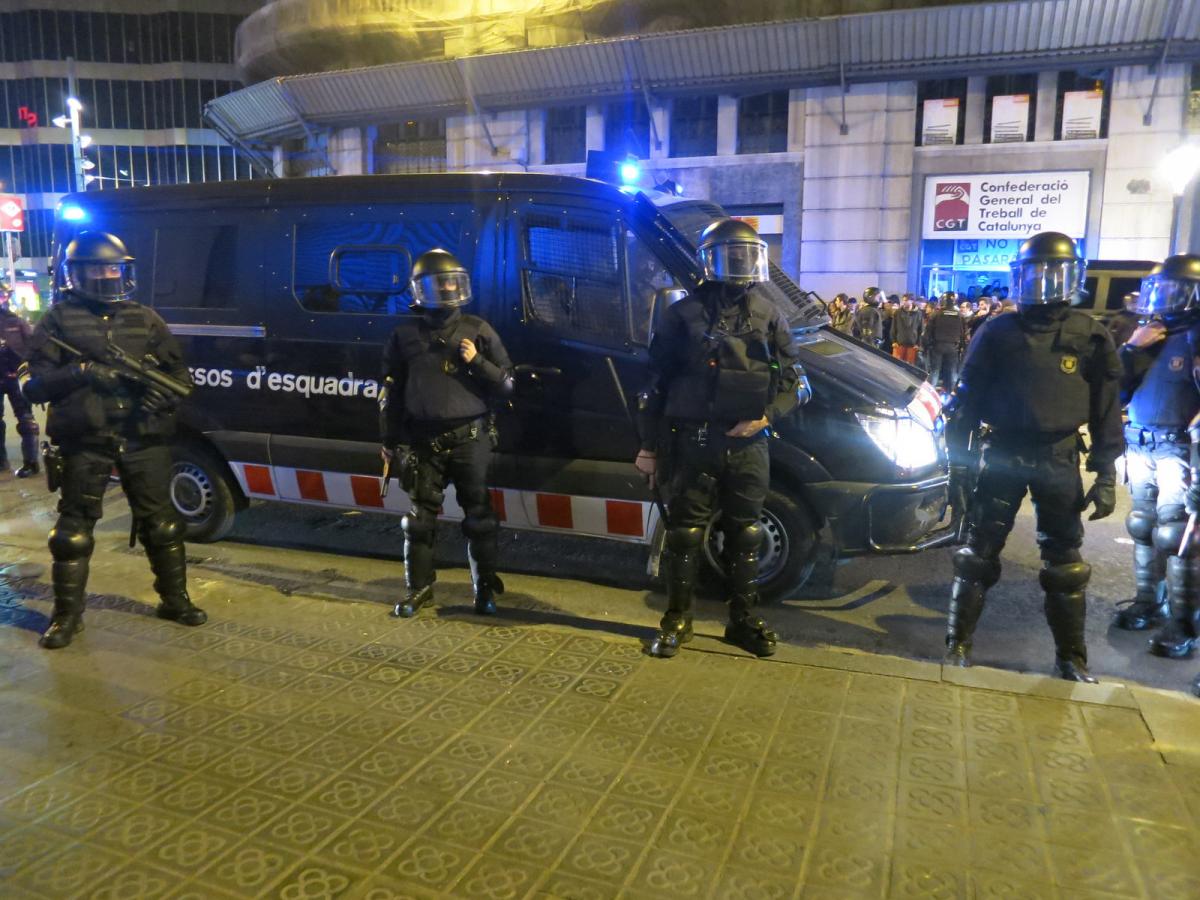 A spectre is haunting the people of Europe, but this time it's not one to be welcomed. All the powers of new Europe have entered into an unholy alliance to raise this spectre: Merkel and Rajoy, Hollande and Cameron, Irish Blueshirts and Greek state police. Where is the movement in opposition that has not been decried as terroristic by its opponents in power? Where is the opposition that has not cried out for law and order in the face of the more progressive parties? Two questions result from these facts:
A spectre is haunting the people of Europe, but this time it's not one to be welcomed. All the powers of new Europe have entered into an unholy alliance to raise this spectre: Merkel and Rajoy, Hollande and Cameron, Irish Blueshirts and Greek state police. Where is the movement in opposition that has not been decried as terroristic by its opponents in power? Where is the opposition that has not cried out for law and order in the face of the more progressive parties? Two questions result from these facts:
-
What class, classes or section of the population is conjuring up this phantasm? IE, what classes benefit from authoritarian extremism?
-
What is to be done? IE, What course of action should the people of Europe take to counter this threat? And what role do the libertarian left have to play in bringing that course of action to fruition?
To answer these questions, it is essential to examine the current wave of reaction across the European continent and asses its purpose and its source.
Abortion: Bodily Autonomy, Capitalism, Misogyny
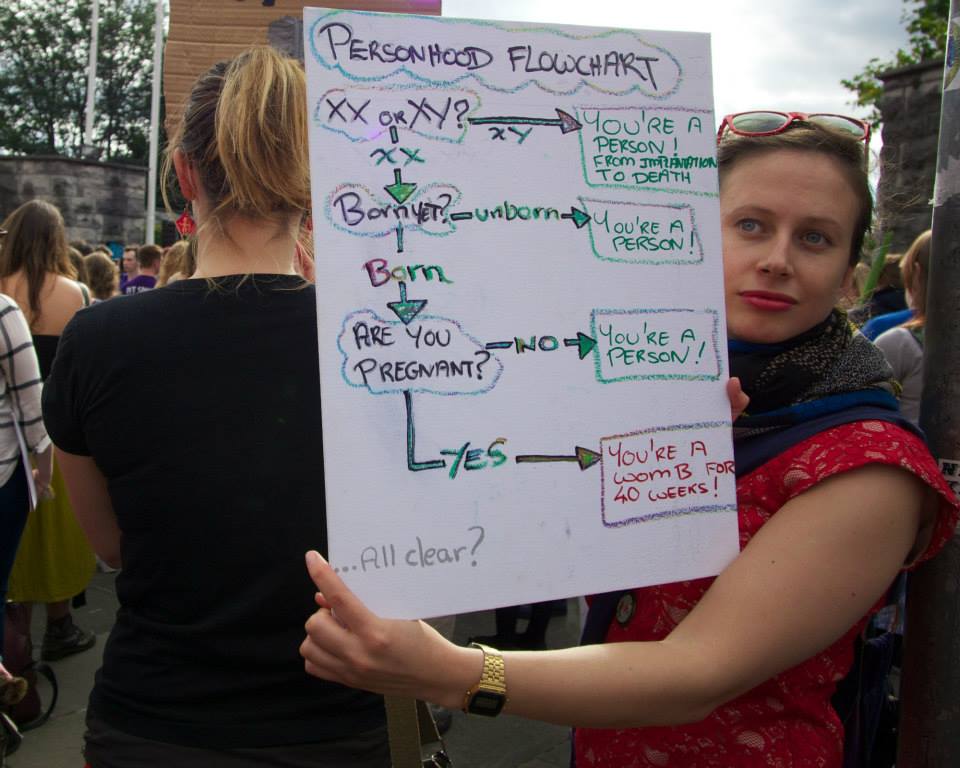 In this society we are told that we have certain rights; the right to vote, the right to protest, the right to bodily autonomy (i.e. the right to decide what happens to our bodies). All of these rights can be taken away in a flash at the whim of those in power. But you cannot take away from a pregnant person that which they don’t have: bodily autonomy.
In this society we are told that we have certain rights; the right to vote, the right to protest, the right to bodily autonomy (i.e. the right to decide what happens to our bodies). All of these rights can be taken away in a flash at the whim of those in power. But you cannot take away from a pregnant person that which they don’t have: bodily autonomy.
Abortion is extremely restrictive on this island, with the southern state not acting on the prohibitive legislation that is in place – as was highlighted with Ms. Y in August 2014 – and the northern state only allowing abortion when the pregnancy endangers the mother’s life (read: not health).
Direct Action: A Basic Introduction - Video & Text
An introductory video on what direct action is and isn't, providing illustrations from the campaign against the water charges.
Direct action is at the heart of the struggle against the water charges, from preventing meters being installed, to Meter Fairies removing them, to boycotting registration and the water bills in April. But what is direct action, and what is it not?
Water Charges: We've Got Them Surrounded. Imagine Winning. What Comes Next?
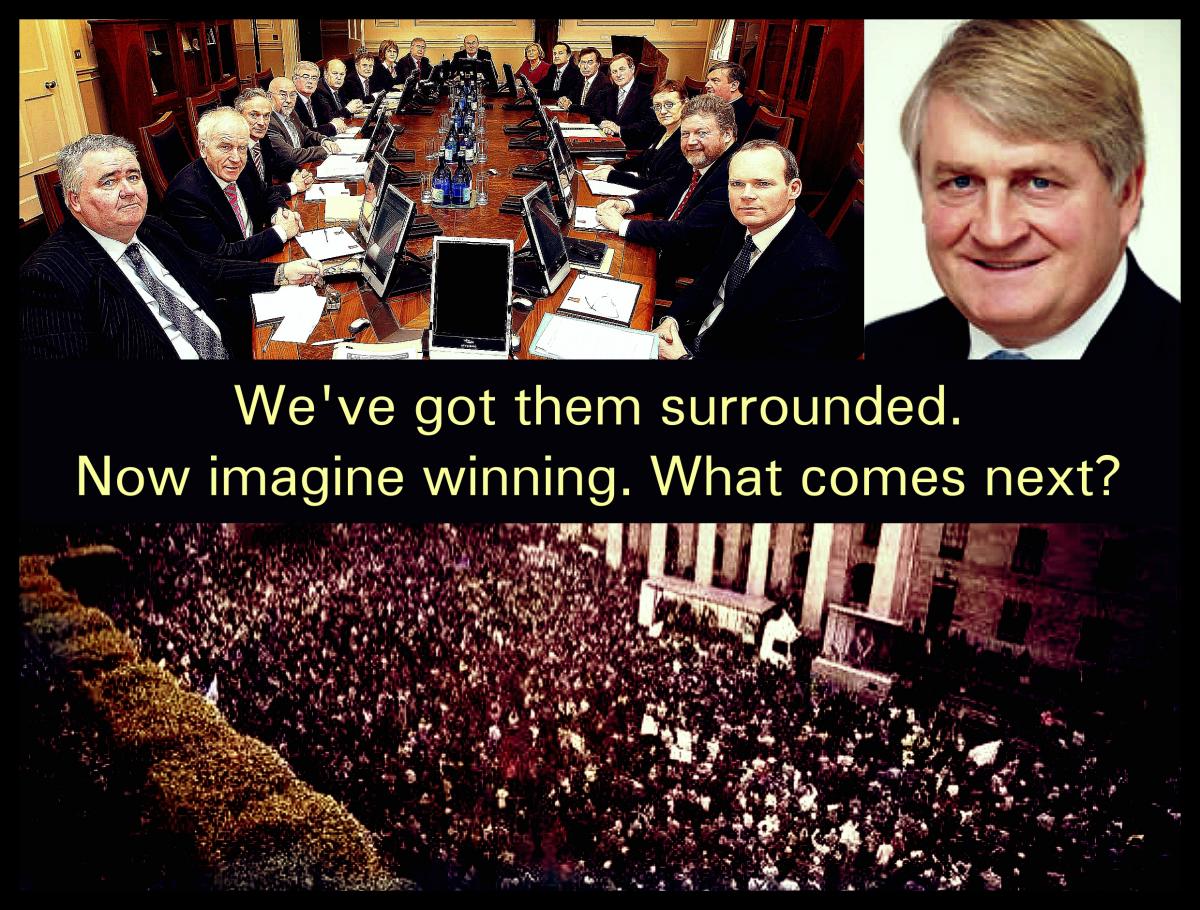 We can win this battle but we would be fools to settle for that. As someone said at the January 31st demonstration, 'we have them where we've wanted them for years'. Our opportunity is huge, with a great multitude politically awakened and eager to change society. So the question is presented: will we waste this opportunity to make a better world or will we seize it? What do we do once we win, and how should that affect what we do now?
We can win this battle but we would be fools to settle for that. As someone said at the January 31st demonstration, 'we have them where we've wanted them for years'. Our opportunity is huge, with a great multitude politically awakened and eager to change society. So the question is presented: will we waste this opportunity to make a better world or will we seize it? What do we do once we win, and how should that affect what we do now?
This raises lots of other broad questions we should all ask ourselves:
- Is voting in a new government enough?
- Should we keep the system the same, or try something new?
- How do we achieve that better world?
- What would a better system look like?


